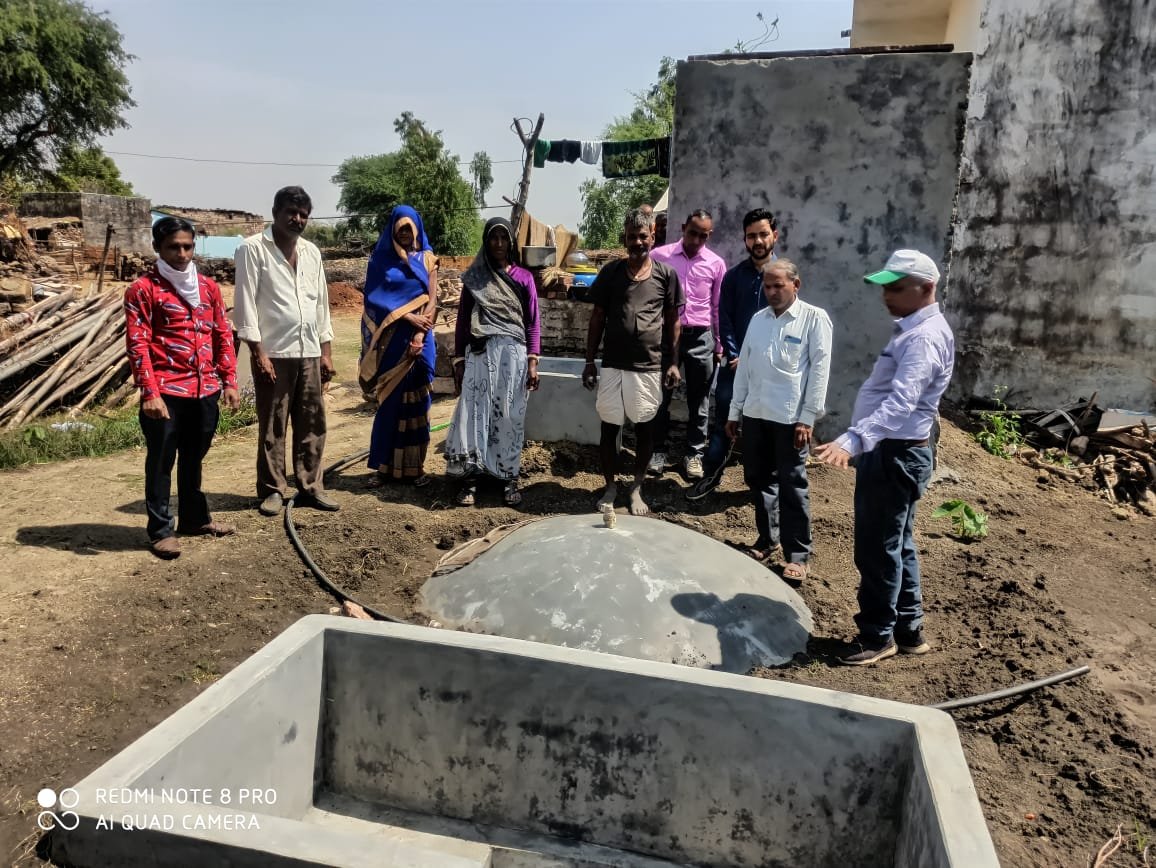
Toilet linked biogas plants prove a hit in rural kitchens
Of late, especially after the onset of the COVID pandemic and the subsequent economic slowdown, the NITI Aayog has been actively looking for scalable and replicable model to change the eco-system of the rural areas of the country. As an effort in this direction, the nodal agency decided to address the issue of Faecal Sludge Management (FSM) and also ensure Reuse of nutrients from faecal matter. After studying the research done in the area, the Aayog recommended the FINISH Society’s Toilet Linked Biogas Plant (TLBG) model from Valsad in Gujarat to various CSR arms of companies. The nodal agency believes TLBG can support tribal and marginal farmers to reduce input cost for agriculture, reduce dependence on fossil fuel and also provide manure for kitchen/nutrition garden to these targeted families. As a result of this, several corporates including the CSR arm of ITC Limited have been asked to adopt “Aspirational Districts.” As part of this initiative ITC Mission Sunehra Kal (MSK) along with technical expertise provided by FINISH Society adopted Kailwari block of Baran District of Rajasthan, 200 km from Jhalawar. They have so far constructed 5 TLBGs in the area. A consultant who specializes in constructing these cost-effective bio-gas plants, D N Singh from Uttarakhand was roped in to help motivate people for the operation and maintenance of TLBG. He also provided technical man power for the construction work. The construction cost of each of these TLBG plants was borne by Mission Sunehra Kal. Bahari Lal, former Sarpanch of the Balda Gram Panchayat who agreed to instal the bio-gas plant in his house says: “We earlier did not have any knowledge about Gobar gas. We did not have any information about how it is made and used. The biogas does not have any foul smell and the faecal slurry is removed. The food cooked on it is tasty and the chapatis do not have any patches. The flow out from human excreta is used as compost in farming. We have a total of ten members in the family who have enough food to eat without any problem, using the Gobar gas.” The four other families too are very pleased with the outcome, even though in the beginning the thought of using faecal matter as fuel to cook food in the kitchen was simply unthinkable. Hari Mohan, resident of Hatwari village proudly says: “I built a gobar gas plant in the name of my son. Earlier, we had a separate pit for our toilet but now we have attached it to the plant. We now dump the cow dung into it along with human excreta of our family’s 7 to 8 members. There is no bad smell and the gas is being made in surplus amounts.” Once these TLBGs are successfully used for six months, they will be replicated in more areas of the district. GOBAR GAS FACTFILE All toilet link biogas units are in working condition, and they all are using biogas for cooking food, preparing cattle food, making tea etc. They are using on an average 10-15 kg cow dung and 1.5- 2 kg human excreta daily for preparing biogas. Organic manure produced by TLBG unit is very productive for agriculture. They will get approximately 2 kg manure daily for agricultural use. They are also environmentally clean. This also saves them approximately Rs 700/- on LPG cylinders each month.



